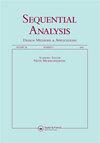抛物型偏微分方程概率解的一种算法
IF 0.6
4区 数学
Q4 STATISTICS & PROBABILITY
Sequential Analysis-Design Methods and Applications
Pub Date : 2021-10-02
DOI:10.1080/07474946.2021.2010403
引用次数: 0
摘要
摘要本文的目的是用概率方法近似抛物型偏微分方程的轨迹解。该方法基于Feynman-Kac表示法和蒙特卡罗方法。作为经典蒙特卡罗的替代方案,我们在这里使用了准蒙特卡罗方法,并通过比经典算法更有效的算法提出了使用该替代方案的一些解决方案。本文章由计算机程序翻译,如有差异,请以英文原文为准。
An algorithm for probabilistic solution of parabolic PDEs
Abstract The aim of this work is to approximate the trajectory solution of parabolic partial differential equations (PDEs) by the probabilistic method. This method is based on the representation of Feynman-Kac and Monte Carlo methods. As an alternative to classical Monte Carlo, here we employ quasi–Monte Carlo methods and propose some solutions to the problem of using this alternative through a more efficient algorithm than the classics.
求助全文
通过发布文献求助,成功后即可免费获取论文全文。
去求助
来源期刊

Sequential Analysis-Design Methods and Applications
STATISTICS & PROBABILITY-
CiteScore
1.40
自引率
12.50%
发文量
20
期刊介绍:
The purpose of Sequential Analysis is to contribute to theoretical and applied aspects of sequential methodologies in all areas of statistical science. Published papers highlight the development of new and important sequential approaches.
Interdisciplinary articles that emphasize the methodology of practical value to applied researchers and statistical consultants are highly encouraged. Papers that cover contemporary areas of applications including animal abundance, bioequivalence, communication science, computer simulations, data mining, directional data, disease mapping, environmental sampling, genome, imaging, microarrays, networking, parallel processing, pest management, sonar detection, spatial statistics, tracking, and engineering are deemed especially important. Of particular value are expository review articles that critically synthesize broad-based statistical issues. Papers on case-studies are also considered. All papers are refereed.
 求助内容:
求助内容: 应助结果提醒方式:
应助结果提醒方式:


